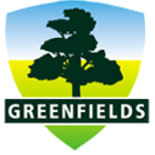The Early Years Foundation Stage (Nursery and Reception)
All children in the Foundation Stage work towards the Early Learning Goals. The Foundation Stage curriculum is divided into seven areas of learning. They are grouped under two heading
Prime Areas:
- Personal, Social, Emotional Development
- Communication and Language
- Physical Development
Specific Areas:
- Literacy
- Maths
- Understanding the World
- Expressive Arts and Design
Children are assessed throughout the Foundation Stage using the Early Years Foundation Stage document.
30 Hours Provision
We are delighted to offer free 30 hours provision to all the 3 year old children in our Nursery class whose families meet the Government criteria – details of which can be found here:
www.gov.uk/apply-30-hours-free-childcare
Families who are not eligible under this scheme can access the provision at a cost of £5.25/per hour.
This provision is provided by Early Years Staff with a focus on developing the Prime Areas of Learning from the Early Years Curriculum. The children take part in activities that are linked to the learning taking place during the morning sessions and also have access to Forest School learning.
This is offered daily from 8.45-3pm with an hour for lunch and free play. Families who want to access this provision are able to choose how often their child will use the facility. Please be aware that families need to apply and be approved for the funding the term before it is needed, ie apply for the Autumn term (September) before the end of the Summer term (mid-July). Please contact the school office for more information.
Forest Schools
The children in Nursery and Reception have the opportunity to take part in Forest School activities every week, throughout the academic year.
Forest School, a long term, learner led approach, offering children time, freedom and space to learn at their own pace, through open ended play. Forest School offers learners practical experiences and the opportunity to take supported risks, led by a qualified Forest School practitioner, which are appropriate to the environment and to themselves, such as den building, fire lighting and tool work.
The natural environment provides resources and opportunities to learn and embed lifelong social skills, fostering resilient, confident, independent and creative learners.
